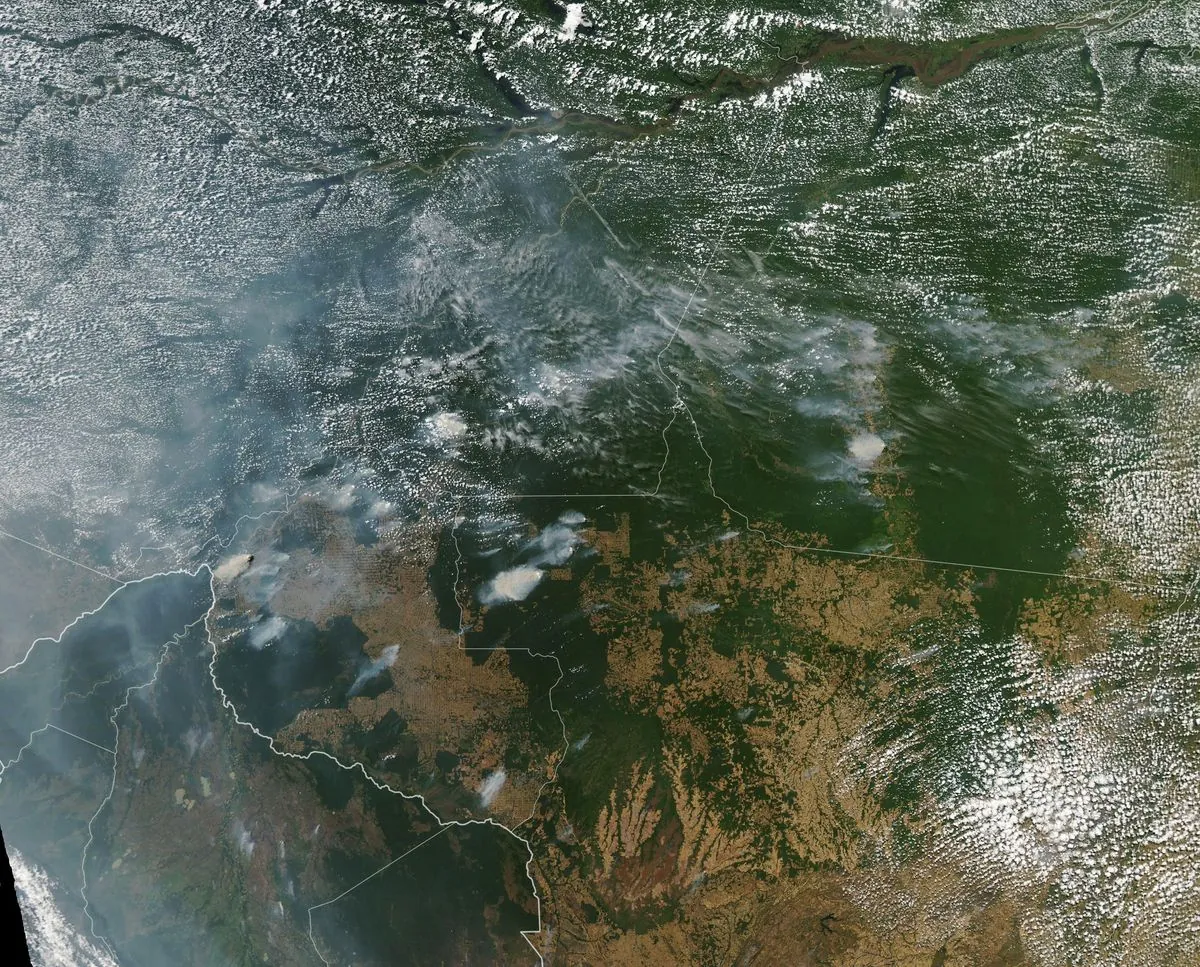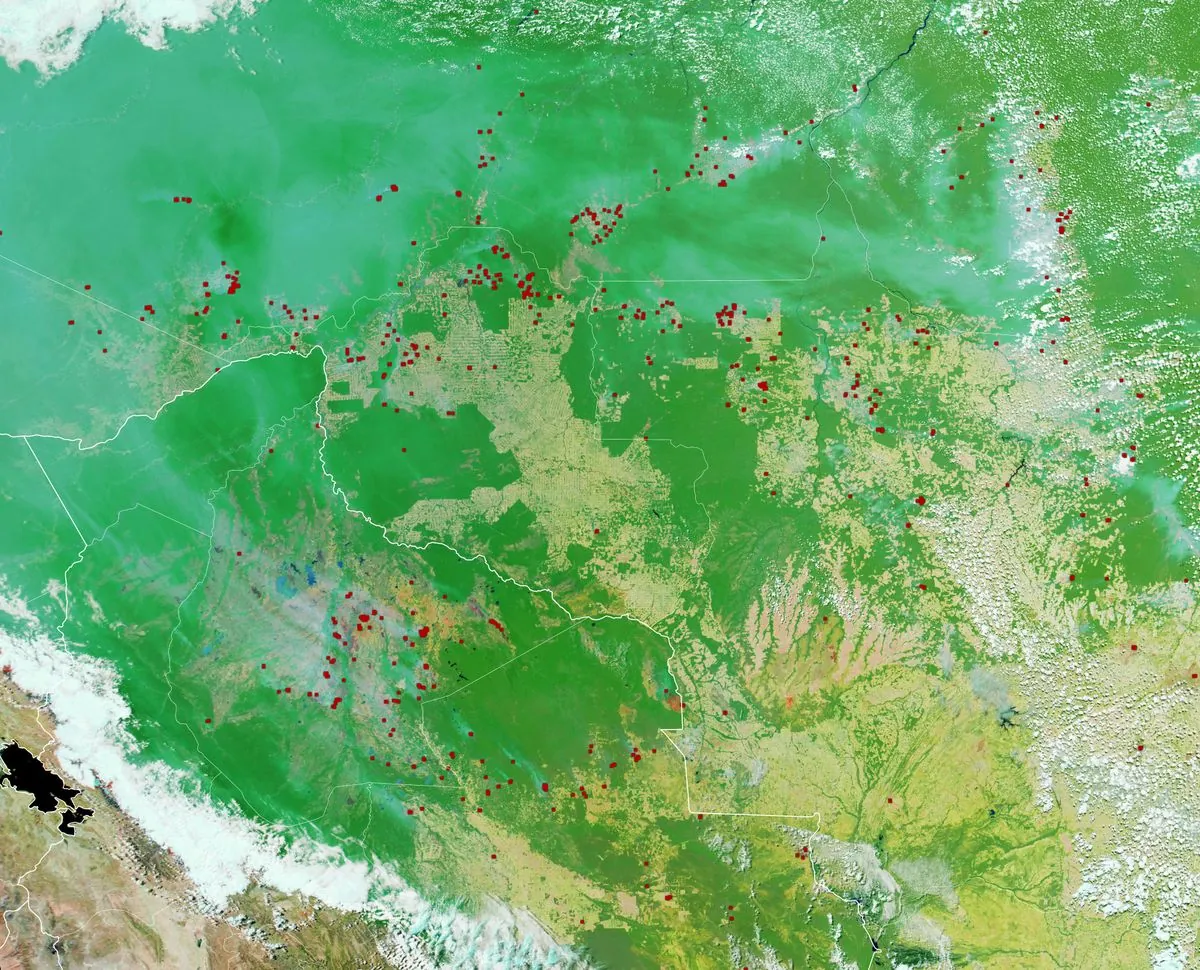South America Ablaze: Record Fires Ravage Continent, Sparking Crisis
South America faces unprecedented fire crisis, breaking records with over 346,000 hotspots. Brazil and Bolivia struggle against extreme weather, impacting air quality and raising environmental concerns.

South America is currently grappling with an unprecedented fire crisis, shattering previous records and raising serious environmental concerns. As of September 12, 2024, the continent has witnessed over 346,000 fire hotspots, surpassing the previous record set in 2007.
Brazil and Bolivia, two of the most affected countries, have deployed thousands of firefighters to combat the blazes. However, their efforts are being hampered by extreme weather conditions, which are exacerbating the spread of fires across various ecosystems, including the Amazon rainforest, the world's largest wetlands, and Bolivia's dry forests.
The environmental impact of these fires is profound. The Amazon rainforest, often referred to as the "lungs of the Earth," produces about 20% of the world's oxygen and is home to approximately 10% of known species. The ongoing fires not only threaten this biodiversity but also contribute significantly to global carbon emissions.

Satellite imagery has revealed a massive smoke corridor stretching diagonally across the continent, from Colombia to Uruguay. This extensive smoke coverage has darkened skies and severely impacted air quality in major cities. São Paulo, the largest city in the Southern Hemisphere, recently experienced the world's worst air quality, surpassing notorious pollution hotspots in China and India.
Climate change is playing a crucial role in intensifying these fires. Ana Paula Cunha, a drought researcher with Cemaden, stated:
This prolonged drought, coupled with unusually high temperatures, has created ideal conditions for fire spread. In São Paulo, winter temperatures have consistently exceeded 32°C (90°F), a phenomenon described as "absurd" by Karla Longo, an air quality researcher at Inpe.
The health implications of these fires are severe. Exposure to wildfire smoke is expected to increase hospital admissions for respiratory issues and may lead to thousands of premature deaths. A 2023 study in Environmental Research: Health revealed that wildfire smoke inhalation contributes to an average of 12,000 early deaths annually in South America.
Public concern is mounting, with protests erupting in affected areas. In La Paz, Bolivia's capital, hundreds marched demanding action against the fires. Fernanda Negron, an animal rights activist, emphasized the scale of the disaster:
As September typically marks the peak of the fire season in South America, the outlook remains uncertain. While some regions may experience relief with forecasted rains, drought conditions are expected to persist in Brazil's northern Amazon and central agricultural areas through October.
The current crisis underscores the urgent need for comprehensive environmental policies and international cooperation to address climate change and protect South America's vital ecosystems.


































